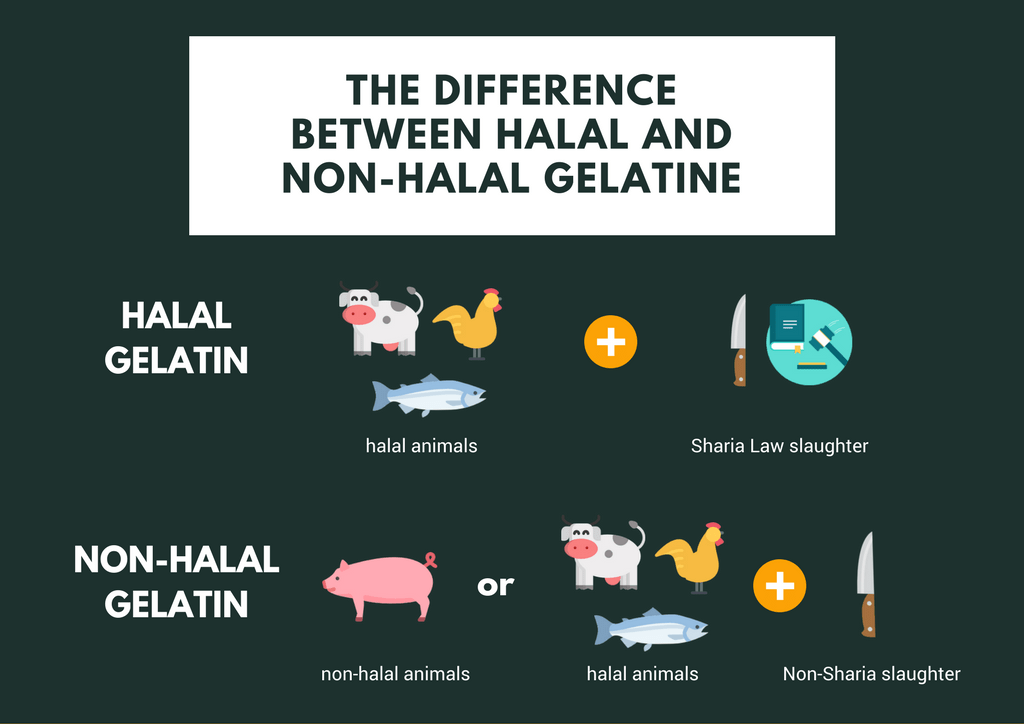
How to Tell the Difference Between Halal and Non-Halal Gelatin
How to Tell the Difference Between Halal and Non-Halal Gelatine
Gelatin is used in chewy and fluffy sweets and desserts, but finding halal gelatin is not easy for Muslims around the globe. Halal gelatin is getting more attention these days since it makes sweets and desserts finer and fluffier. How can we tell the difference between what’s halal gelatin and what’s not?
Have a read of your full guide on Fiqh of Islamic Gelatine.
What is Gelatin and Where Does It Come From?

Gelatin is a colourless, tasteless and odourless setting agent. It is usually found in sweet food like chewy and gummy candies, puddings and marshmallows. Gelatin is also present in some dairy products like yogurt and sour cream. Other than for cooking, gelatin is used in pharmaceutical drugs, capsules and vitamins, and in cosmetics.
Gelatin is made from the boiled bones, skins and cartilages of animals. The most common source of gelatin is pigs (porcine gelatin) and cows (bovine gelatin). This is because pigs and cows have the most excess by-products left by the meat industry like skin, bones and horns. By far, 42.4% of the world gelatin production is extracted from pigskin. The other 57.6% is extracted from sources like cows, fishes and chicken.
Out of these numbers, only 0.7% of gelatin is halal.
What’s the Difference between Halal and Non-Halal Gelatin?

Physically, there’s not much difference between halal and non-halal gelatin. But for Muslims, there are two criteria that must be met for a gelatin to be halal. First, halal gelatin must be extracted from halal animals like cows, chickens and fishes. The animal (except fish) must then be slaughtered according to Sharia Law. After that, the skin and the bones can be extracted to make gelatin.
On the other hand, gelatin extracted from non-halal animals is non-halal. Gelatin extracted from halal animals that were not slaughtered according to Sharia Law is also non-halal.
How Can I Look for Halal Gelatin?
Although halal gelatin is hard to find, there are still ways for Muslims to enjoy fine and fluffy candies and deserts.
First, look for Halal or Vegetarian Logo. If the food has gelatin but there is no halal or vegetarian logo, it’s better to avoid it. If there’s halal or vegetarian logo on it, then enjoy! Another way is to look for alternatives derived from non-animal sources like agar-agar. Other alternatives like pectin and konjac are also available for purchase.
If you can’t find non-gelatin sweets to satisfy your cravings, try making some jellified treats with these alternatives yourself!
Recipes may change so always check the ingredients on the pack.